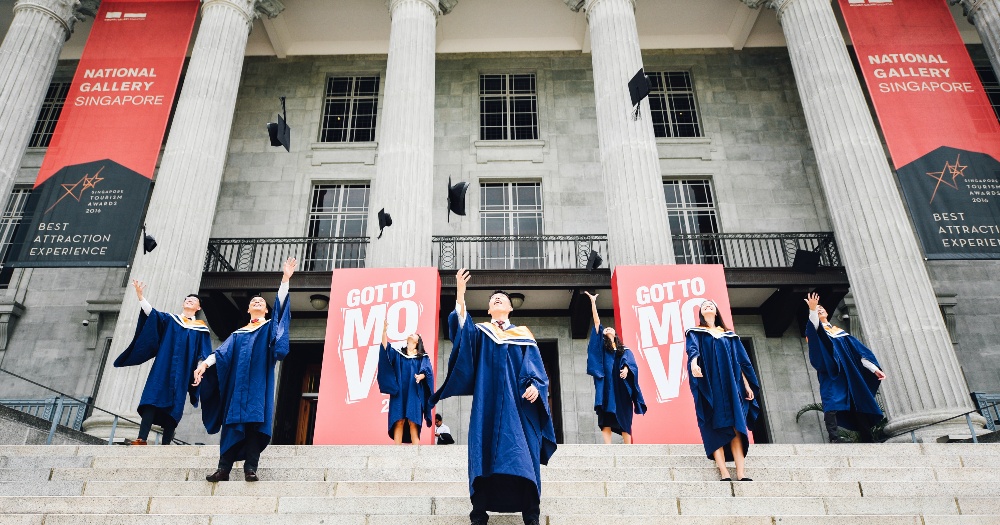If you had told me as an undergraduate that I’d be working for Mothership just two years after graduation, I’d have stared at you in disbelief and asked, “Why?”
Like so many Arts students in their final year of University, I was a bumbling 23-year-old who had no clue what I wanted to do in life.

Four years of studying English literature at the tertiary level had equipped me with critical thinking skills, a heightened awareness of different cultures and insightful knowledge about the human condition, but it had also left me reeling from the occupational uncertainties of a general degree.
While teaching seemed like the most obvious path (for my degree) after graduation, I wasn’t sure if I had enough heart, skill, or grit to take on the responsibility of nurturing our nation’s future.
On the other hand, writing seemed like a plausible idea.
I had always enjoyed writing as much as I had enjoyed reading, but the sheer amount of practice needed to hone the craft had always daunted me.
After all, Rome wasn’t built in a day, and nobody becomes a writing maestro overnight.
(And as an English major trained to write prosaic, long-form essays, delving into the world of commercial writing seemed like an unfamiliar, mammoth task.)
Job experimentation and carving a path
Confronting these fears, my first job post-graduation was an internship with a travel writing company.
I saw this internship as a way of building up my writing portfolio after having done some freelance writing while I was still studying.
With little to no industry experience, my first month at the company was an immense struggle.
On top of having to re-write copy, pitch ideas for organic articles, do research on places of interest and write sponsored material about things I had never even experienced before, I was expected to work like a machine.
I was overwhelmed by the pace at work, and constantly felt like quality was compromised for quantity’s sake.
My editor sensed that I couldn’t cope, and gave me the option of cutting short my internship.
Heavy hearted and with no clue as to what I would embark on next, I accepted her offer.
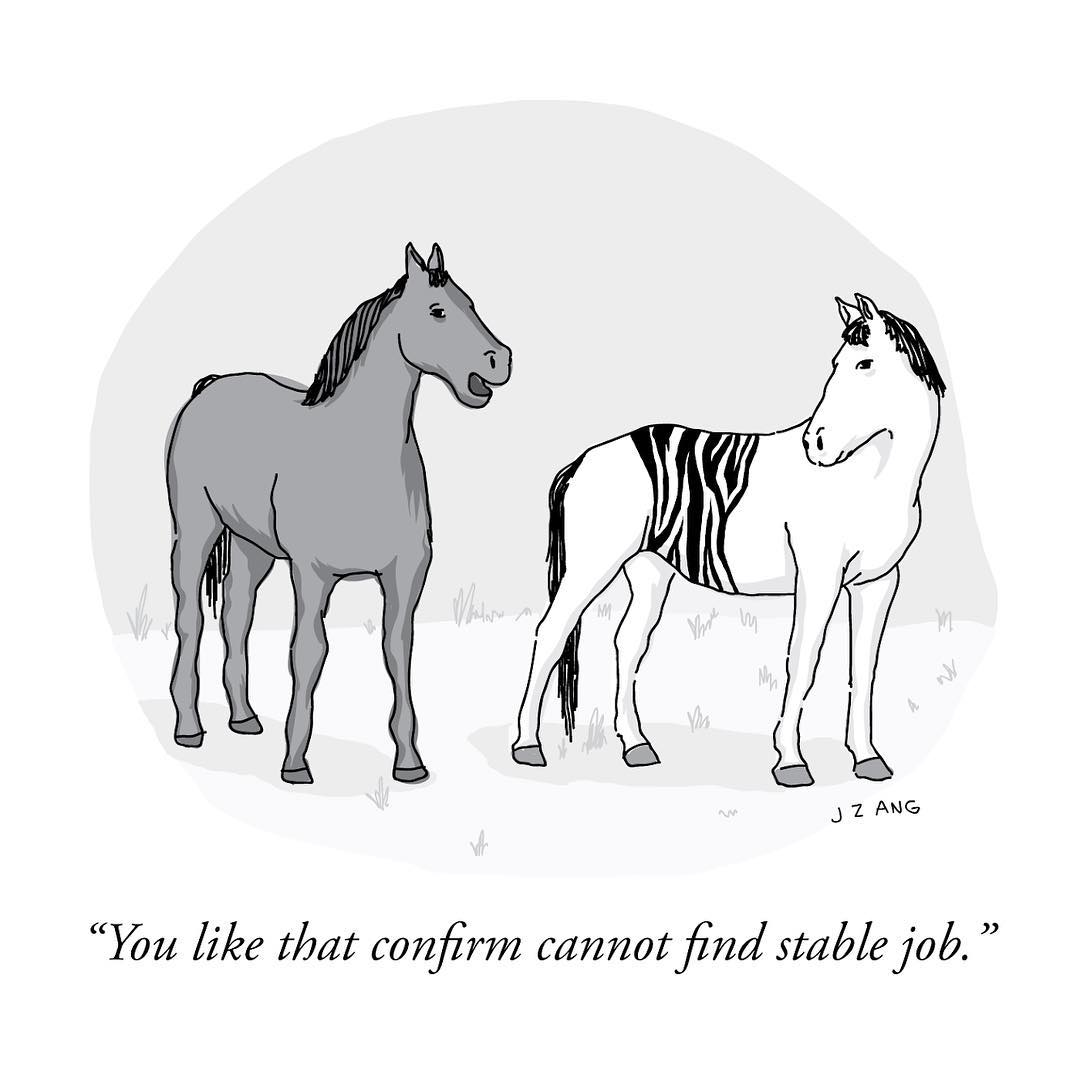 Image via Highnunchicken on Facebook
Image via Highnunchicken on Facebook
A month later, I found a job at an enrichment centre for toddlers and lower-primary children.
I saw this as a way to “test the waters” to see if teaching was a possible career option for me, before considering applications to NIE.
Located in the heart of Bukit Timah and downtown Newton, many of the kids who attended this enrichment centre were from upper-class families.
My role as a teacher required me to train them in cognitive skills aimed at improving their emotional intelligence, concentration and resilience.
Interacting with the children was fun, but I constantly felt inadequate at work because of my lack of expertise and relevant qualifications.
As monthly fees were expensive and parents were demanding, I was also under intense pressure to deliver the results they wanted.
And just a month and two weeks after work started, I was let go with a remark from my boss that a different industry would suit me better.
Falling hard and learning where my strengths lie
Over the next eight months, I tried my hand as a social media manager and junior copywriter at two different advertising agencies.
At the first advertising agency I worked at, employees were expected to do more than their job scope for minimal pay, and any lapses in performance stuck out like a sore thumb.
Unlike more technical industries where formulas can be memorised, adapted and applied to arrive at given results, the advertising industry also prizes innovation and conceptual creativity (in addition to meeting deadlines and client expectations) - skills that are not guaranteed even with practice or experience.
As copywriting is a craft that requires brevity, wit and precision, I also learnt that being a good writer doesn’t always translate.
Things weren’t much better at the second advertising agency I worked at either.
I remember wading through a cesspit of ad annuals to come up with more than 100 different headline options for three key visuals, only for my managing director to reject close to all of them.
Pitching ideas and receiving feedback from my creative director was also like being savagely critiqued by Michael Kors on Project Runway.

Due to the lack of guidance and training, my stints at both advertising agencies ended after I was let go within a smattering of months.
Before parting, my managing director also told me that my strengths lay more in editorial writing, and that I should consider a career in that direction.
Job compatibility and finding the right fit
And so when Mothership offered me an opportunity to join the company after I had applied for the position of a writer in the beginning of 2019, I was flattered but doubtful.
Would I again fail to meet expectations?
Would this be yet another sinking ship?
After all, I had at the same time received a job offer from the SCDF for the position of a communications executive, and was torn about having to choose between the two.
On one hand, a job in the public sector seemed like the wiser alternative given my failures in the private sector thus far.
On the other hand, a job at Mothership felt like a once-in-a-lifetime opportunity that may never come by again.
After voicing concerns about my past struggles and my own personal limitations, as well as assurance from my boss and managing editor, I decided to accept the offer to work at Mothership.
Thankfully, the company was willing to train me on the job, and I have never looked back ever since.

If there’s anything I’ve learnt after changing four jobs in two years and gaining a new job in the next, is that a job that matches your skill sets and having an employer who is willing to invest in you are key in finding a company that is the right fit.
After all, some industries can be an extremely cutthroat and unforgiving place for many graduates like me, who may have to start from ground zero and learn everything from scratch.
Use MyCareersFuture as a job and career resource portal
If, like me in the past, you are a fresh graduate who has no idea what you want to do in your career or first job, fret not.
MyCareersFuture (MCF) is here to address all your job and/or industry-related questions so that you’ll be able to make a wiser decision when it comes to applying for one.
Unlike how I had to fumble through job after job looking for one that’s the right fit, MCF will suggest job roles that are suitable for you and your skill sets.
There are also self-help articles and virtual career fairs to further facilitate your job search journey.
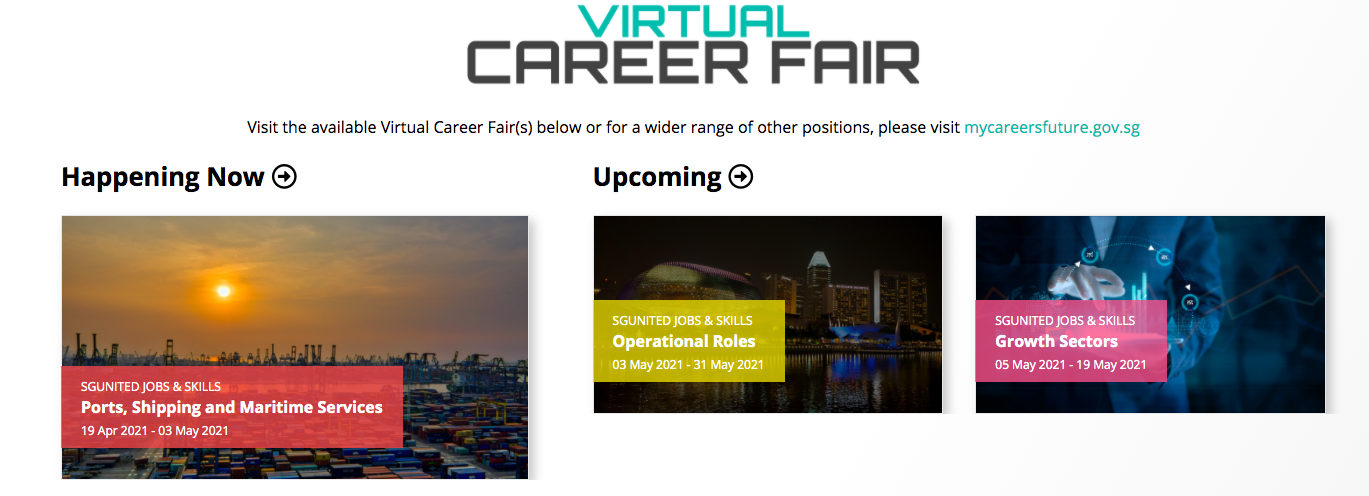


Based on what other people like you have applied for on the portal, MCF will also help you search and apply for relevant jobs that you may not have considered before.
Depending on your needs and wants, there are even filters for the following criteria:
- Type of employment
- Minimum salary
- Job level
- Job locations
- Government support

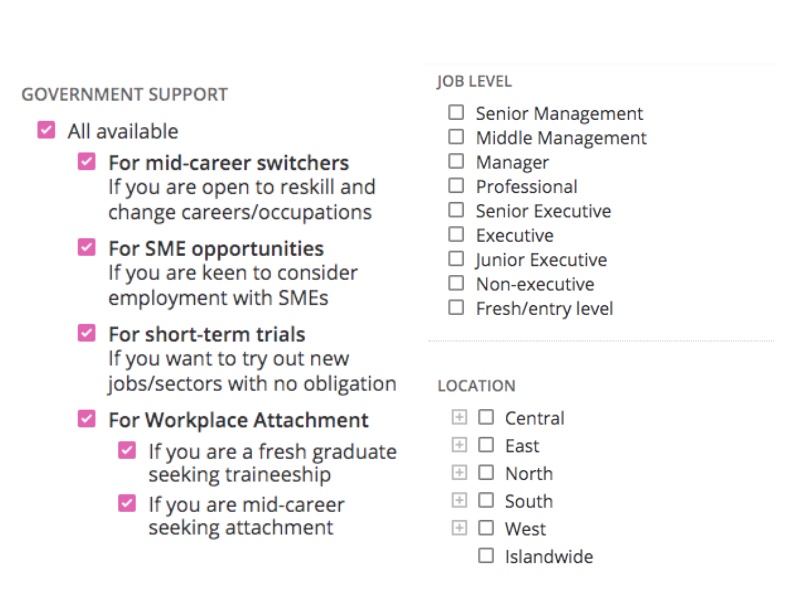
You’ll also be able to sign up for career coaching services that will help you identify where your strengths lie and advise you on how to plan a career path for yourself - something that I will definitely keep in mind.
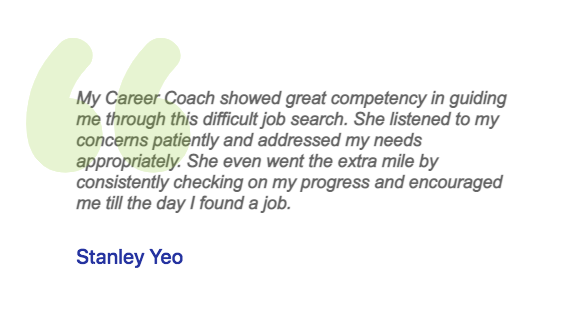
To get personalised access to the latest career tips and advice sent straight to your inbox, join WSG’s mailing list here.
This sponsored article by WSG gave this writer a chance to look back and ruminate on her past working experiences.
Image via Lucas law on Unsplash
If you like what you read, follow us on Facebook, Instagram, Twitter and Telegram to get the latest updates.
